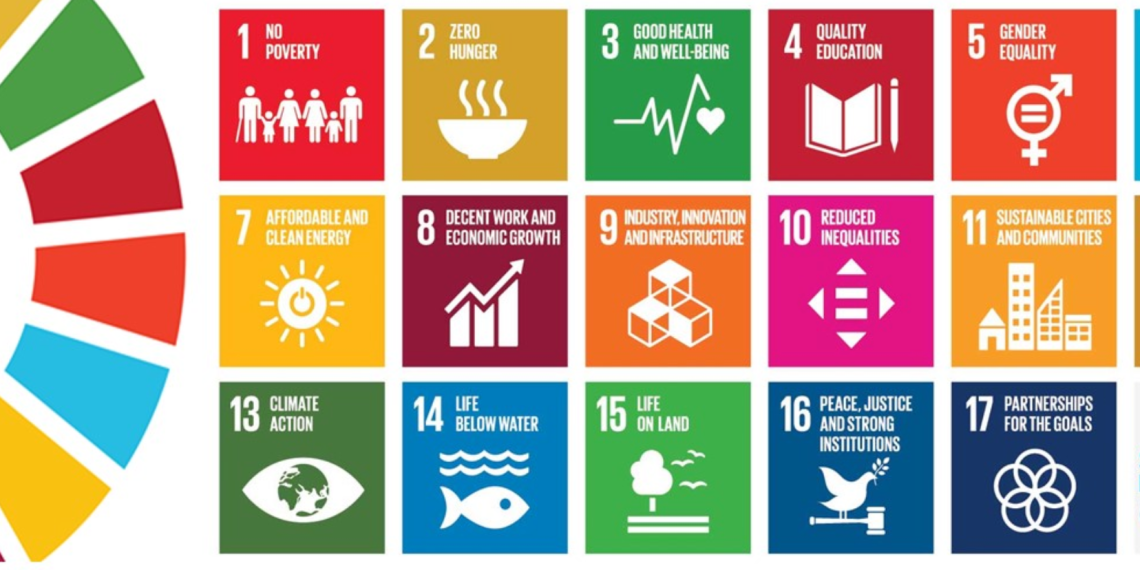In 2015, United Nations member states signed on to the Sustainable Development Goals (SDGs) as a universal call to action to end poverty, protect the planet and ensure that all people enjoy peace and prosperity by 2030.
Countries had made commitments to “fast-track progress for those furthest behind” through the pledge tagged Leave No One Behind
Despite the commitment of Nigeria to the Sustainable Development Goals, the country continues to lag behind when it comes to socio-economic development that targets the goals. The country had also failed to achieve the Millennium Development Goals (MDGs) which had similar development aspirations and a similar 15 year implementation period.
For instance, in the 2019 SDG index, Nigeria ranked 159th among 162 countries compared in terms of their achievement of the Sustainable Development Goals (SDGs). Nigeria’s performance score of 46.4 is just a little above the score for the Central African Republic, a country sitting at the lowest rung of the index.
Nigeria is undisputedly the giant of Africa and the most populous nation – with a population of 213 million and an estimated GDP of 45 trillion naira as at the third quarter of 2021 making it the largest economy in the continent. Between 1951-2021, the number of people living in Nigeria increased at a rate above two percent with a current death and infant mortality rate of 11.188 and 56.220 deaths per 1000 live births respectively.
The giant of Africa in 2019 became the global headquarters of poverty with an estimated 91.8 million of its population living in extreme poverty. The World Bank has also projected that the number of Nigerians living below the poverty line will increase to 95.7 million in 2022.
Nigeria is a country with a very low Human Capital Index rating and a high level of youth unemployment. The country’s unemployment rate rose from 27.1 percent to 33.3 percent from December to March 2021, according to the National Bureau of Statistics, NBS.
On health, Dataphyte review of the budgetary allocation to the health sector in the last twenty years revealed that Nigeria has never met the 15% target agreed to by the heads of state of the AU countries at the summit which is known as the Abuja Declaration.
The allocation to the health sector in the 2022 proposed budget is just 4.34% of the entire budget. This means that Nigeria has again failed to meet the 15% commitment it agreed to since 2001.
On education, according to UNICEF about 10.5 million of the country’s children aged 5-14 years are not in school which is the largest in the world. In 2017, the World Economic Forum ranked Nigeria 120th out of 136 countries with regard to the quality of primary education.
A recent report by the Sustainable Development Goals Center for Africa – “Africa 2030: Sustainable Development Goals Three-Year Reality Check” – corroborated that little progress has been made towards the achievement of SDGs in Africa as a whole. One in three Africans is at the risk of food insecurity while more than half of the global poor (those who earn under $1.90 PPP per day) are found in Africa.
The Sustainable Development Goals Center for Africa report highlighted that the global COVID-19 pandemic has caused a humanitarian and economic crisis that poses risks for the attainment of SDGs and compromised the efforts on the “Decade of Action.”
The report estimated an additional 60 million Africans could be pushed into poverty and food insecurity is expected to nearly double. It also estimates that 110 million African children and youth are out of school, fragile health care systems are being tested, and women are at risk of being left out even more.
“Slow economic activity and lockdowns will increase unemployment and debt while decreasing remittances, development assistance and domestic revenue are added risks to financing for development and SDGs.’” says the report.
There appears to be a consensus among stakeholders that Nigeria does not have the capacity to meet the Sustainable Development Goals (SDGs) by 2030. One of the biggest stumbling blocks to the achievement of the goals is that the country requires $350 billion to achieve the goals.
$350 billion is about 800% more than the entirety of the country’s 2022 budget and 37.28% of this budget will be financed by debt.
Stakeholders had expressed doubt in the country’s ability to achieve the Sustainable Development Goals. Lack of planning and poor implementation are some of the reasons identified for the country’s failure to achieve these goals. Others say the country’s budgetary allocations and priorities have gone in the opposite direction of the achievement of the goals.
Accurate data, citizen engagement and rigorous monitoring and evaluation are identified as critical to set Nigeria on the path to achieving SDGs. This will probably not happen in time for the deadline but Nigeria could at least be on the path to achieving the goals at a time farther than 2030 but hopefully not too far in the future.


